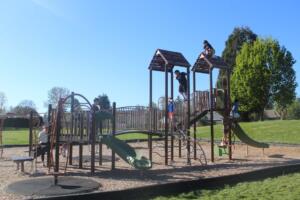Washougal City Manager David Scott recently characterized the city’s 2020 budget, which city council members approved in early December, as “executable” but “tight.”
The budget projects revenues of $43,776,646 and expenses of $50,796,482.
“We are able to maintain current service levels, but nothing beyond that,” Scott said. “In order to accomplish that, this is the second year in a row that the dollars appropriated to the departments in the general fund were not given any inflationary adjustments. (Essentially) the buying power of our departments for our general fund services has gone down.”
The city has been limited by its relatively stagnant rate of new construction, Scott said.
“For a community that’s got a lot of new construction, its property tax revenues might go up 5, 6, 7, 8, 9 percent, and it will have a little bit of room to operate and potentially expand programs,” he said. “But if your new construction is coming in at 1 or 2 percent, you add that to the 1 percent that you (already) get, that revenue stream’s only going up 2 or 3 percent, and that’s basically enough to barely keep your nose above water. That is Washougal’s situation.”
This is why fostering industrial and retail development, Scott said, is one of the city’s top objectives for 2020.



